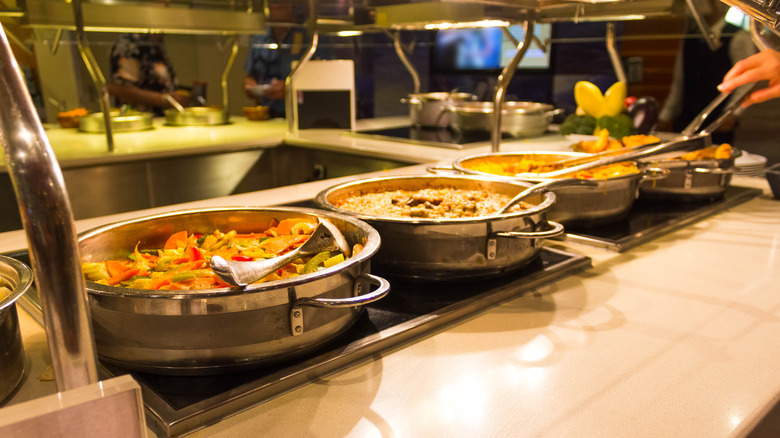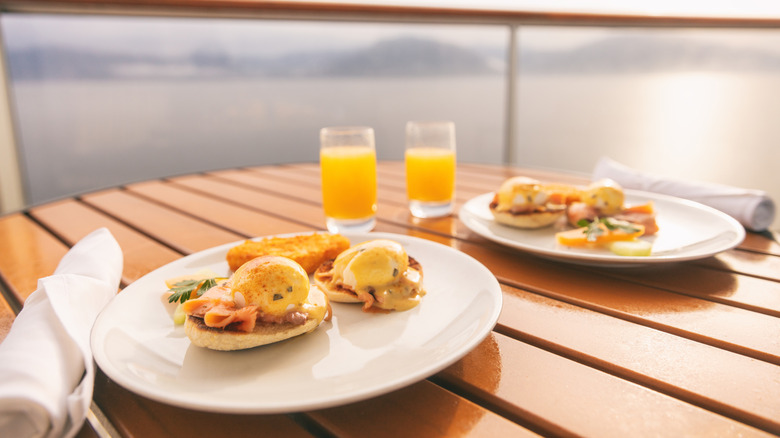The Entire Category Of Food You Should Avoid Ordering On A Cruise Ship
When you're on a cruise, it's tempting to treat every meal as an all-you-can-eat food experience. But as delicious as the menu looks, some meals can turn your vacation dream into a stomach nightmare, and you should avoid ordering them. Spicy dishes, especially those cooked with chili oil, cayenne, jalapeños, or hot sauces, are a sure-fire way to ignite heartburn and indigestion. On a cruise, unwanted bathroom breaks are the last thing you want to be imprisoned by. And while the salsa-drenched tacos and tikka masala might look super tasty, it's probably best to save them for when you're back on land.
Another issue is that cruise ships cook in large quantities, typically for thousands of people per seating. That means spicy levels might be inconsistent. A "mild" dish can still pack some unwanted heat, so it's in your best interest to avoid ordering altogether, even if you have a high spice tolerance. Spicy food can also mess with hydration. Peppers make you sweat more, and sweating dehydrates you faster, especially if you're sunbathing, swimming, or consuming alcohol during the day. And when you're dehydrated, headaches, dizziness, and fatigue are just around the corner. Out on the ocean, you have fewer options to treat digestive issues. There is no chance for a quick drive to the drugstore, and seasickness naturally keeps your stomach on high alert. After all, your body's already confused about the constant imbalance caused by the ocean.
Cruise-safe foods that won't ruin your trip
If you want to avoid ordering spicy foods on a cruise, but don't know what to order, opt for flavorful but gentle meals and snacks. You're good to go if the meal relies more on herbs than heat. Think grilled meats like chicken or fish, lightly seasoned rice, or veggie-based foods. Cruise ships are famous for buffets, and they often have menus with comfort food favorites like baked potatoes, grilled vegetables, or soups and stews. These are a much safer option to keep your already-stressed stomach satisfied. Because cruises tend to spotlight regional specialties, fresh seafood will usually be available onboard, so that's also worth trying. However, oysters, sushi, and other raw seafood are considered high-risk because they can quickly spread bacteria.
Another tip is to eat smaller meals, especially in the first few days, while your body adapts to the boat. Heavy or oily meals, even if not spicy or fiery, may still have your stomach growling, especially when coupled with ocean waves and motions. Finally, drink plenty of water with every meal. It aids digestion, keeps you hydrated, and balances out salt-heavy dishes. It also helps to have a ginger ale on hand if you get nauseous. And remember, when in doubt, ask the server for clarification about the ingredients used in preparing your dish.

